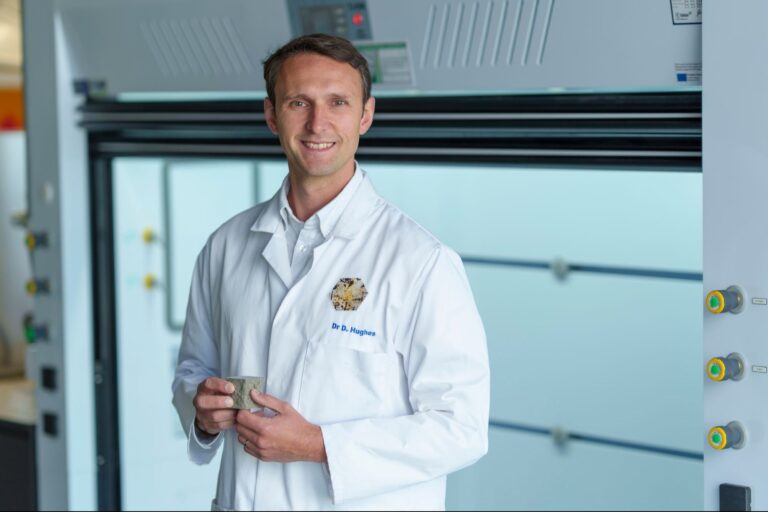Revolutionizing Cement Production: Material Evolution’s Low-Carbon Solution
Cement stands as one of the primary contributors to global greenhouse gas emissions, accounting for approximately 8% of total emissions worldwide. Addressing this pressing environmental issue is Material Evolution, a cleantech startup based in Middlesbrough, England. Founded by Dr. Liz Gilligan in her parents’ garage, the company has rapidly expanded its operations and has recently launched the UK’s largest ultra-low carbon cement plant in Wrexham, with an annual production capacity of 120,000 tonnes. This innovative facility is designed to reduce embodied CO₂ emissions by as much as 85% in comparison to conventional cement.
The Role of Government Support
Material Evolution’s journey has been bolstered by significant governmental backing, which has played a crucial role in its growth. “We have benefited greatly from public funding, particularly through initiatives like UK Research and Innovation (UKRI) and Innovate UK grants,” stated David Hughes, Chief Scientific Officer at Material Evolution. This financial support has been instrumental in advancing the company’s technology and scaling its operations effectively within a five-year timeframe.
Challenges of Market Adoption
Despite securing vital research and development (R&D) funding, Hughes emphasized an ongoing challenge for startups: bridging the gap between technological innovation and market acceptance. For companies like Material Evolution to thrive, a robust market for their low-carbon products is essential. “The government has the opportunity to influence this landscape positively. They could aid in leveling the playing field by incentivizing low-carbon materials through subsidies or tax breaks,” he suggested.
Learning from International Best Practices
Hughes highlighted successful international examples, particularly from Ireland, where policy frameworks are effectively encouraging the adoption of low-carbon materials. “Ireland has implemented procurement guidelines to advocate for reduced embodied carbon in construction materials, mandating the use of lower-carbon cements in public projects,” he observed. Such initiatives not only enhance market confidence but also yield substantial environmental benefits.
For perspective, the Irish cement sector produced 2.88 million tonnes of CO₂ emissions in 2022, which represented about 4.8% of the country’s total emissions. In contrast, the UK cement industry released approximately 9.18 million tonnes of CO₂ equivalent annually. Hughes noted that establishing similar regulations in the UK could drive significant reductions in emissions.
Promoting Innovation and Market Awareness
To foster a thriving ecosystem for innovation, Hughes advocates for greater visibility and awareness of emerging technologies. “The government can enhance the adoption of new technologies by promoting them through publications and social media. ‘Technology visits’ by ministers can also spotlight innovative developments,” he suggested. Raising public and political awareness of these advancements could lead to increased interest from investors and facilitate cross-sector collaboration.
Building a Sustainable Future
The evolution of Material Evolution from a modest startup to a key player in the cleantech sector underscores the potential of innovative solutions in combating climate change. However, Hughes stresses that to secure a leadership position in cleantech, the UK must adapt its policies to keep pace with technological advancements. “Mandating the use of low-carbon materials in infrastructure projects and favoring domestically produced materials over imports would send a powerful market signal,” he emphasized. This direction could unlock further investments and accelerate the shift toward sustainable construction practices.
In conclusion, as the world looks towards a more sustainable future, the developments at Material Evolution highlight the vital intersection of innovation, policy, and market dynamics. It is time for stakeholders to build a robust foundation for these environmentally friendly solutions to flourish.


